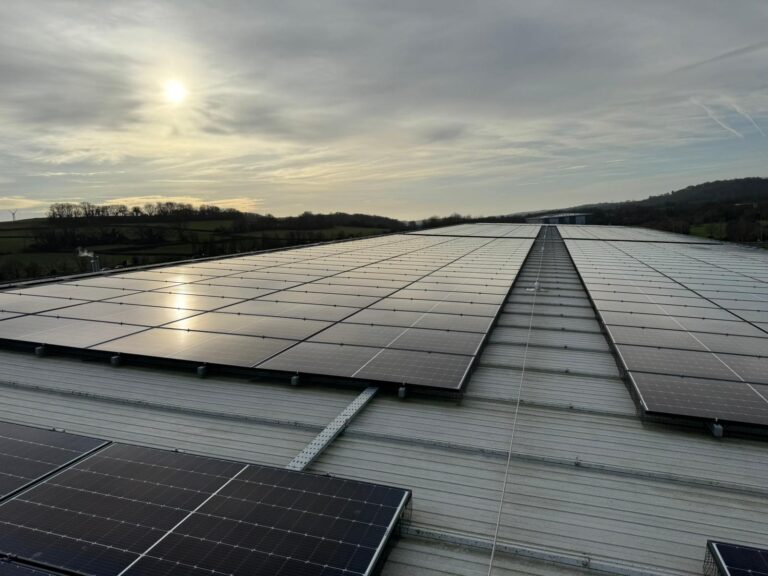Mastering VAT on Solar Panels for Business
In the modern business landscape, adopting renewable energy solutions like solar power has become a strategic move for companies aiming to lower operational costs, enhance sustainability, and demonstrate corporate responsibility.
However, when investing in a commercial solar installation, businesses must be mindful of the financial implications especially VAT on solar panel installations.
The treatment of VAT on commercial solar PV installations can be surprisingly complex. Understanding how it applies from the point of purchase to installation, financing, and even revenue generation is critical for calculating the true cost and return on investment.
This guide provides a comprehensive overview of VAT on solar panels for business, highlighting each key stage of the project and clarifying how VAT on solar products influences both expenses and potential income.

vat on commercial Solar pv installations Overview
The treatment of VAT on commercial solar PV Installations is structured around the various stages of a solar project. Here’s a quick look at how VAT on solar PV panels applies at each step:
Stage | Type | VAT Charged? | VAT Rate |
Purchase & Installation | Typical Installation | Yes | 20% |
Financing (HP) | Hire Purchase | Yes (Upfront) | 20% |
Financing (SL) | Solar Leasing | Yes (Ongoing) | 20% |
Financing (PPA) | Power Purchase Agreement | Yes (Ongoing) | 20% |
Government Grants | Grant Funding | No | 0% |
Grid Export Income | VAT-Registered Business | Yes | 20% |
Grid Export Income | Non VAT-Registered Business | No | 0% |
Let’s dive into each stage to see exactly where VAT on solar panels for business comes into play.
How vat on solar panels fits into the equation
1. Purchase & Installation
When a business decides to purchase and install a commercial solar PV system, VAT on solar installations is applied at the standard rate of 20%. This includes VAT on solar panels, inverters, batteries, mounting hardware, and any related labour or consultancy services.
Unlike residential properties, where recent government policy introduced zero VAT on solar panels for home use, businesses are not eligible for zero-rate VAT on solar panel installations. The full VAT on solar products applies across the board. So, for commercial clients, the installation-related costs will all carry a standard VAT charge.
2. Financing Options
If you’re looking to spread the cost over time, how you finance your system also impacts the VAT treatment:
✅ Hire Purchase: Under a hire purchase, the VAT is paid upfront alongside your deposit. This upfront VAT on PV panels becomes part of your capital outlay, while the remainder is paid off in instalments.
✅ Solar Leasing: Monthly lease payments on solar panels will include 20% VAT, which is factored into your operating expenses. This option doesn't require large upfront capital, but VAT on solar panel installations becomes an ongoing cost.
✅ Power Purchase Agreements (PPA): With a PPA, your business purchases electricity from a third-party owner of the system. These payments also include VAT on solar installations, meaning electricity consumption under a PPA will be subject to the full 20% VAT rate.
✅ Government Grants: Grant-funded portions of a solar installation are VAT-exempt, which can significantly reduce your effective cost. This helps offset some of the expenses associated with VAT on commercial solar PV installations, although grants are typically competitive and conditional.
3. Exporting Electricity to the Grid
Selling excess energy back to the grid? Here’s where things get interesting:
✅ VAT-Registered Businesses: If your company is VAT-registered, you must charge 20% VAT on the revenue earned from exporting energy via schemes like the Smart Export Guarantee. This includes any income generated from solar panels VAT-impacted systems.
✅ Non VAT-Registered Businesses: If your business isn’t VAT-registered, the income earned from exporting electricity is free from VAT obligations. No VAT on solar panels doesn’t necessarily apply to your costs, but it does benefit your earnings side.
This distinction can influence how small businesses approach solar and many choose to stay below the registration threshold to benefit from this VAT-free revenue.
4. Bonus Insight: VAT on Green Business Energy Tariffs
Even if you’re not ready to install your own system, opting for green energy tariffs supports sustainability goals. But here’s the fine print: these tariffs like all electricity contracts still incur 20% VAT, even when the source is solar or wind.
However, some small businesses qualify for a reduced 5% VAT rate on their energy supply, including green tariffs. This is based on consumption thresholds and business usage types, not the energy source itself.

VAT on solar panels for business
Understanding tax rebates and incentives on solar panels for business is key to making smart investment decisions. Whether you’re going all-in with an outright purchase or considering financing through leasing or a PPA, VAT on solar panel installations will influence your budget and ROI calculations. And while you won’t benefit from zero VAT on solar panels like homeowners currently do, the long-term payoff can still make solar a sound strategic move.
For the best results, consult a qualified accountant or VAT advisor before committing to any solar project. They’ll help you navigate the complexity around VAT on solar products, solar panel incentives and rebates, financing methods and export earnings, ensuring that your business is well-positioned to maximise returns and avoid hidden costs.
In the end, while solar panels VAT may feel like an added hurdle, the return of lower energy costs, a reduced carbon footprint, and long-term energy security makes it a smart, future-proof investment for forward-thinking businesses.
Ready to take advantage of VAT savings on commercial solar panels? Start your journey toward lower costs and long-term energy security today.
